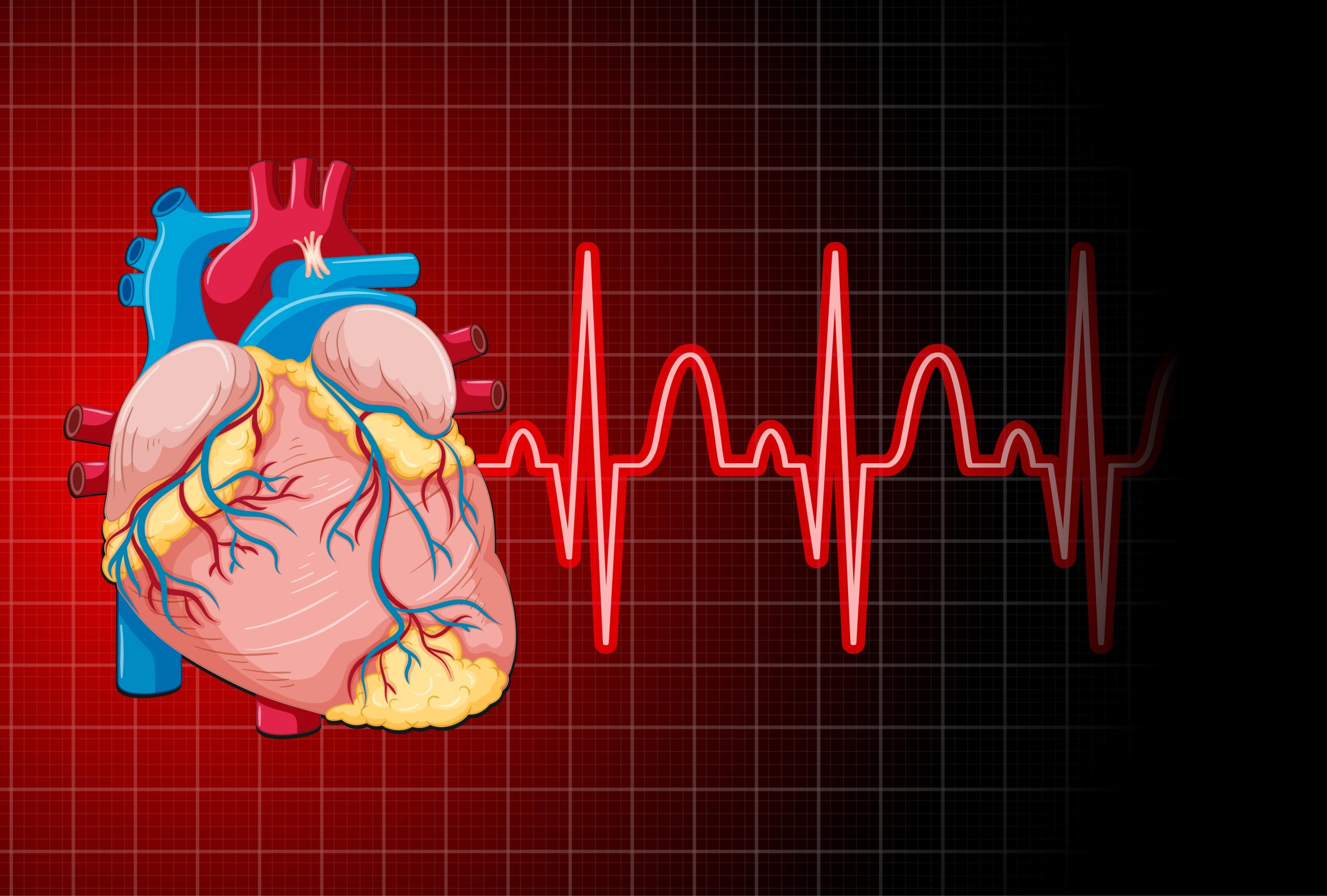Dr Garcia shares habits that keep your heart strong for life
Dr Garcia shares habits that keep your heart strong for life
Blog Article
Understanding the Value of Cardiology in Modern Medical Care Services
Cardiology plays a vital function in modern-day medical care, particularly as heart problem proceeds to be the leading cause of mortality worldwide. Advancements in diagnostics and therapy have actually changed individual treatment, enabling earlier interventions and enhanced results. The change in the direction of precautionary cardiology equips individuals to handle their health proactively. As technology proceeds to progress, the assimilation of cutting-edge options may even more redefine cardiology's influence on public health, prompting a more detailed exam of arising trends and their implications.
The Prevalence of Cardiovascular Disease and Its Effect On Public Wellness
Although heart condition stays the leading cause of fatality worldwide, its influence prolongs far beyond specific people to influence public wellness systems and economic situations. The high prevalence of cardiovascular disease positions a considerable strain on medical care resources, demanding enhanced funding for therapy, rehabilitation, and avoidance programs. Public health initiatives need to address danger factors such as weight problems, smoking, and less active way of lives, which add significantly to the climbing incidence of heart conditions.Moreover, the economic problem associated with cardiovascular disease is immense, encompassing not only direct clinical costs but additionally indirect expenditures connected to lost productivity and premature mortality. Areas face difficulties in taking care of these prices, frequently causing disparities in medical care accessibility and outcomes. As the population ages and lifestyle-related dangers proceed to escalate, the seriousness for reliable cardiology interventions ends up being extremely important. Consequently, dealing with cardiovascular disease is not just an issue of specific wellness but also an important public wellness top priority.
Advances in Cardiac Diagnostics and Imaging Techniques
Current innovations in heart diagnostics and imaging strategies have actually reinvented the area of cardiology, improving the capability to check and identify heart conditions. Strategies such as heart MRI, CT angiography, and echocardiography have come to be significantly innovative, supplying comprehensive images of cardiac frameworks and features. These techniques enable the early recognition of conditions like coronary artery disease, cardiac arrest, and valvular disorders.Moreover, innovations in non-invasive diagnostics, such as wearable modern technology and remote tracking gadgets, have empowered people and doctor. These tools promote real-time monitoring of heart rhythms and other important signs, bring about timely treatments. Furthermore, synthetic knowledge is being integrated right into imaging analysis, improving accuracy and efficiency in medical diagnosis.
Developments in Therapy Options for Heart Issues
Recent innovations in cardiology have brought about considerable technologies in treatment alternatives for heart conditions. These include innovative surgical strategies that enhance step-by-step outcomes and emerging medications that supply new methods for therapy. As the field advances, these developments play an essential function in improving individual treatment and outcomes.
Advanced Surgical Techniques
Advancements in medical techniques have actually transformed the landscape of cardiology, supplying brand-new hope for individuals with heart problems. Minimally invasive procedures, such as catheter-based treatments, have considerably lowered recovery times and healthcare facility keeps. Techniques like robotic-assisted surgical treatment enhance precision, enabling doctors to navigate complex anatomical structures with higher precision. Additionally, improvements in imaging modern technology facilitate real-time visualization during procedures, improving outcomes. Transcatheter aortic valve replacement (TAVR) exemplifies an advancement in dealing with aortic stenosis, enabling valve replacement without open-heart surgery. Additionally, hybrid approaches that combine surgical and catheter-based techniques offer tailored solutions for various heart concerns. These advanced surgical techniques not just boost individual security however also expand therapy options, underscoring the crucial role of innovation in modern-day cardiology methods.
Emerging Treatments and drugs
As the landscape of cardiology remains to advance, arising treatments and drugs play a crucial duty in enhancing treatment options for heart disease. Technologies such as unique anticoagulants and progressed lipid-lowering representatives have transformed the monitoring of heart diseases, substantially minimizing client morbidity and death. Furthermore, the development of genetics therapies and regenerative medication uses promising methods for treating problems previously regarded permanent. Clinical tests are continually disclosing the efficacy of these treatments, pushing the limits of standard therapies. The combination of electronic health innovations promotes personalized medicine, enabling for tailored treatment strategies based on genetic and way of life variables. Jointly, these advancements underscore the dynamic nature of cardiology, boosting patient outcomes and redefining requirements of treatment in modern-day medical care.
The Function of Preventive Cardiology in Individual Care
Precautionary cardiology plays a vital role in individual treatment by focusing on the recognition of danger variables that add to heart problem. Through way of life adjustment strategies and early detection methods, doctor can properly lower the occurrence of cardio events - Cardiology Jupiter. This positive method not only improves patient outcomes but likewise advertises long-lasting health and wellness
Risk Element Identification
While heart diseases continue to be a leading reason for morbidity and mortality worldwide, effective risk factor recognition offers as a foundation of precautionary cardiology. Identifying risk factors such as hypertension, household, hyperlipidemia, and diabetes history is essential for very early intervention. Healthcare specialists make use of various evaluating techniques to evaluate these variables, enabling tailored preventive actions. In addition, understanding a client's lifestyle selections, such as cigarette smoking and physical lack of exercise, additionally informs threat evaluations. This comprehensive analysis allows medical professionals to develop personalized treatment plans intended at mitigating risks. By prioritizing risk factor recognition, healthcare systems can improve client end results and reduce the general worry of heart diseases, ultimately adding to boosted public wellness techniques and source allotment.
Way Of Living Modification Techniques
A plethora of researches highlights the important duty of lifestyle adjustment approaches in reducing heart disease danger. These methods incorporate dietary changes, enhanced exercise, smoking cigarettes cessation, and weight management. By adopting a heart-healthy diet abundant in fruits, vegetables, whole grains, and lean healthy proteins, people can decrease cholesterol degrees and high blood pressure. Regular exercise strengthens the heart and enhances general cardiovascular health and wellness. In addition, giving up smoking significantly decreases the danger of cardiovascular disease and improves healing prices for those with current conditions. Weight management better adds to cardio wellness by minimizing various other threat aspects such as diabetes and hypertension. Implementing these lifestyle changes not just advertises private wellness but also works as a cornerstone of preventative cardiology in person treatment.
Early Detection Strategies
Way of living adjustments significantly add to lowering heart disease dangers, however they are most effective when combined with early discovery strategies. Preventive cardiology highlights the significance of identifying potential heart issues prior to they intensify right into serious problems. Methods such as high blood pressure monitoring, cholesterol testing, and advanced imaging modern technologies like echocardiograms play crucial functions in assessing cardiovascular wellness. Biomarkers and hereditary screening additionally boost the precision of early discovery, enabling for tailored preventative techniques. Regular heart threat assessments empower doctor to step in proactively, possibly stopping cardiac arrest and strokes (Cardiology Jupiter). By incorporating these early discovery approaches into regular treatment, people check my reference can gain from timely way of living interventions and targeted treatments, ultimately boosting and enhancing results lifestyle
Integrating Modern Technology Into Cardiology Practices
As innovations in technology proceed to reshape various fields, the combination of ingenious devices and systems into cardiology methods has ended up being important for boosting individual care and end results. Telemedicine systems allow cardiologists to monitor people remotely, improving access to care while reducing the problem on health care facilities. Wearable devices, such as smartwatches, make it possible for continual heart rate monitoring, alerting both medical professionals and clients to potential issues in real-time. In addition, fabricated knowledge (AI) is being used to examine large amounts of heart information, assisting in very early diagnosis and individualized treatment plans. Advanced imaging techniques, consisting of 3D echocardiography, improve visualization of heart frameworks, causing a lot more exact interventions. Digital wellness documents (EHRs) improve individual information monitoring, making certain that cardiologists have instant accessibility to vital data. Together, these technical developments are transforming cardiology, promoting positive administration and boosted health and wellness end results for patients with cardio conditions.
The Relevance of Person Education And Learning and Interaction
Individual education and interaction play an essential role in the administration of cardiovascular health. By equipping clients with knowledge about their conditions, treatment alternatives, and way of life adjustments, doctor equip people to take an energetic function in their treatment. This proactive technique can lead to enhanced adherence to prescribed drugs, nutritional modifications, and workout routines, eventually reducing the threat of complications.Engagement likewise promotes a solid patient-provider partnership, motivating open communication and count on. When individuals feel informed and involved, they are a lot more likely to voice issues and ask questions, which can lead to far better professional outcomes. Additionally, academic sources, such as workshops or digital platforms, can improve understanding and advertise self-management methods. In general, prioritizing individual education and engagement is crucial for improving cardiovascular health and wellness, boosting lifestyle, and decreasing healthcare costs related to cardiovascular diseases.
Future Patterns in Cardiology and Their Prospective Effect

Regularly Asked Inquiries
What Way Of Living Modifications Can Minimize Heart Illness Risk?
The existing inquiry addresses way of living modifications that can considerably decrease heart disease risk. Dr Garcia. Taking on a well balanced diet plan, involving in normal physical activity, keeping a healthy and balanced weight, managing stress, and staying clear of cigarette can notably boost cardio health and wellness
How Can I Identify Very Early Signs of Heart Troubles?
Acknowledging early indicators of heart problems entails tracking symptoms such as upper body pain, lack of breath, tiredness, and uneven heartbeat. Prompt understanding her explanation of these indications can trigger necessary clinical evaluation and intervention for much better outcomes.
What Are the Distinctions In Between Cardiologists and Cardiac Surgeons?
The distinctions between cardiologists and heart surgeons depend on their roles; cardiologists primarily handle and detect heart disease via non-invasive methods, while heart doctors carry out procedures to deal with structural heart problems. Each plays an important, distinct function.

Exactly how Commonly Should I Obtain My Heart Wellness Checked?
The frequency of heart checkup differs based upon specific danger variables. Usually, grownups must undergo evaluations each to 2 years, while those with status quo may call for even more regular assessments as advised by medical care experts.
What Role Does Genes Play in Heart Problem Risk?
Genetics significantly affects cardiovascular disease risk, with domestic patterns suggesting acquired problems. Specific genetics can predispose people to hypertension, cholesterol concerns, and other cardiovascular problems, highlighting the importance of hereditary screening in reviewing heart health and wellness. Heart disease stays the leading cause of fatality globally, its effect extends much beyond private patients to impact public health systems and economic climates. Public health efforts must attend to danger factors such as weight problems, smoking, and inactive way of livings, which contribute considerably to the rising incidence of heart conditions.Moreover, the financial burden connected with heart condition is immense, encompassing not only straight clinical costs however additionally indirect costs connected to shed productivity and premature death. Preventative cardiology plays an important duty in individual linked here treatment by concentrating on the identification of risk aspects that add to heart condition. Artificial intelligence (AI) and maker understanding are improving diagnostics and person surveillance, enabling early detection of heart illness. The differences in between cardiologists and heart specialists exist in their duties; cardiologists largely handle and identify heart problems via non-invasive approaches, while heart doctors execute medical treatments to remedy architectural heart concerns.
Report this page